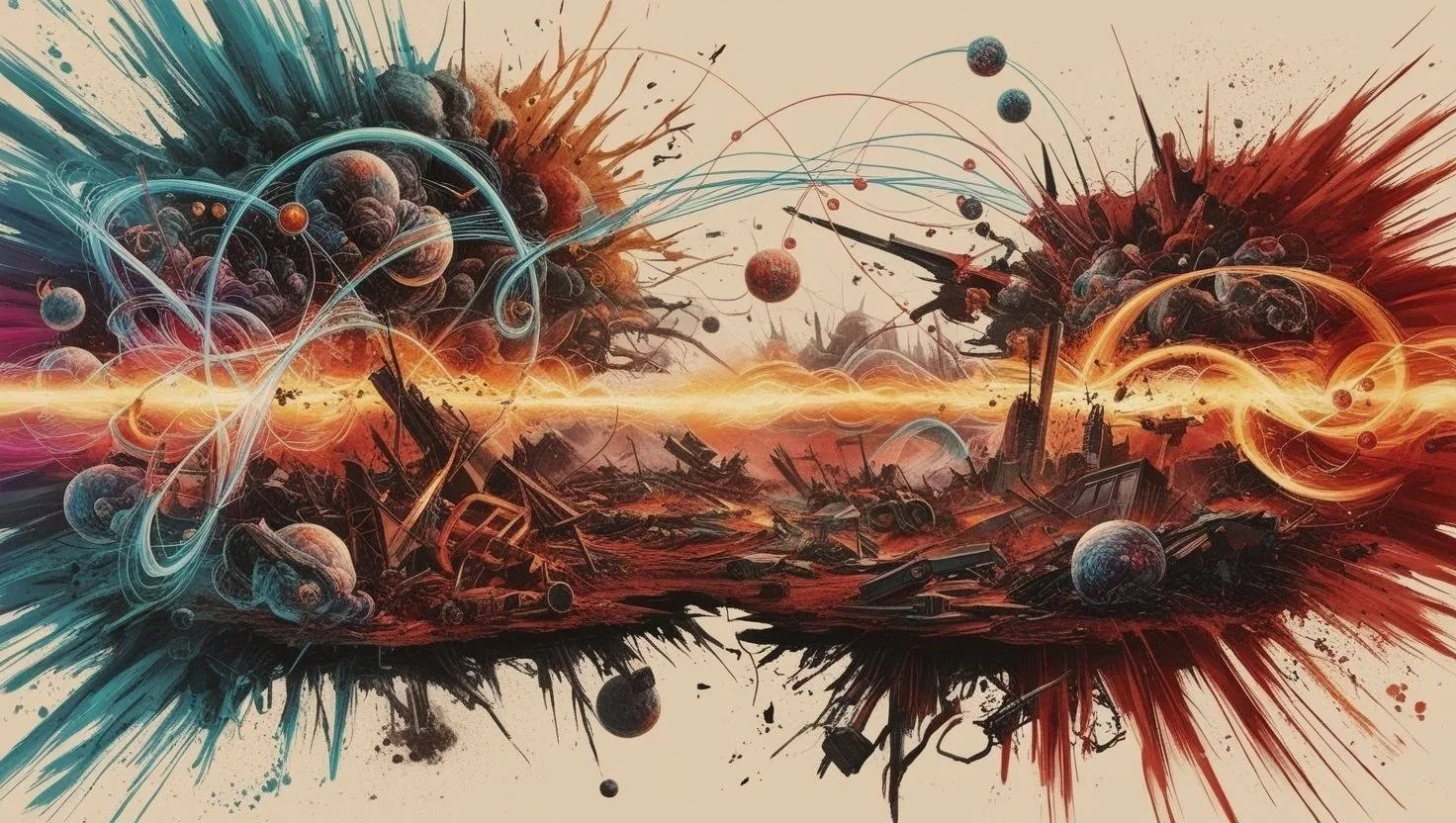
T H E W A R C H E S T
Between Blade and Book. Lessons from the Labyrinth
The Strategist's Scroll. Unpack the timeless nexus of warfare, philosophy, and power dynamics through the lens of Robert Greene 's enduring insights. This blog explores how strategic thinking, human nature, and intellectual wisdom converge on the battlefield of life, from ancient conflicts to modern influence.
The Last Bloke Standing
The text argues that Wiglaf is crucial to understanding Beowulf, particularly in preserving the hero's legacy. It highlights his unique loyalty during the dragon fight, contrasting him with the fleeing thanes and embodying the comitatus bond. Wiglaf serves as a moral compass and a prophet of the Geats' decline, directly challenging the cowardice of the other warriors. His ensuring of Beowulf's burial barrow is presented as a vital act of remembrance. However, the text ultimately suggests that Beowulf's heroic values are not sustainable. The failure of the comitatus, combined with Wiglaf's pessimistic forecast and the symbolic nature of the dragon's hoard and the funeral pyre, points to the fading of these ideals. While Wiglaf offers a spark of hope and the poem itself preserves the memory of heroism, the overall conclusion is that the heroic age is passing, leaving a cautionary tale about the importance of loyalty and courage.
Two Titans of Heroism: Achilles vs. Beowulf
The discussion compares the heroism of Beowulf and Achilles, highlighting their differing motivations, values, and impact on their communities. Achilles is characterised by his individualistic pursuit of glory and is driven by wrath, while Beowulf embodies selfless service and duty to his people. Achilles' death primarily affects morale and serves as a caution about unchecked ambition. Beowulf's death, however, leaves his kingdom vulnerable and signifies the fragility of human achievement, reflecting the differing values of their cultures.

